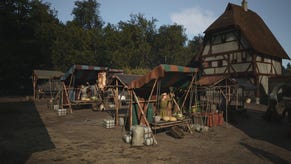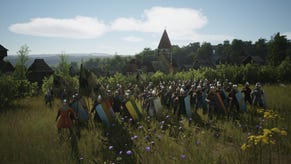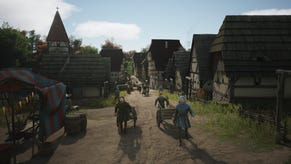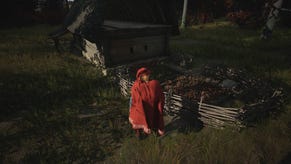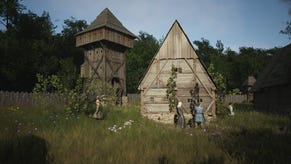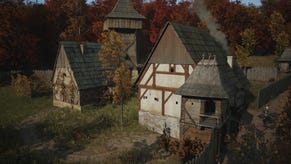Manor Lords and a hidden risk of early access we don't talk about
Who's really in control?
This week, everyone's been talking about early access releases again. Why? The headline moment was No Rest for the Wicked developer Moon Studios defending a bumpy early access release by saying, "It's already pretty clear that going with EA is one of the best decisions we could've made." And then unexpectedly it added: Dark Souls 1 could have been better had it had an early access release too - an odd addendum and I'm not sure I agree with it, but OK. The other thing this week was mega-Wishlisted game Manor Lords arriving in early access in, again, an unfinished state. Neither of these things is remarkable. We know how early access releases go by now - we've had them for the past 10 years (god is it really that long?). We know games aren't finished when they arrive, though there's still a part of us that sees a game being sold for full-price-like money and expects a full-price-like experience from it. So around Manor Lords and No Rest for the Wicked, a familiar discussion has resurfaced, of when are - and when aren't - early access releases a good thing?
There are some well-worn arguments here you will have heard before, and undeniably the open development model - which came in at around the same time as the 'take back control from the publishers' crowdfunding movement in 2012-ish - has notable benefits. It's hard to argue against the added income a game makes by launching into early access, with which a developer can finish making a game, without cutting corners. And it's hard to argue against having a huge and readily available QA team to playtest a game and new features, and offer feedback on them. You no longer need to guess what your audience likes: you simply can let them play it and see what they think. A lot of games that go through early access come out better on the other end, and some have been enormous successes, like Baldur's Gate 3 and Hades and Slay the Spire. It's no wonder each of the companies behind those particular games are set on using early access again.
Indeed, when I think about what I played of Manor Lords, early access seems like a great place for it. To my mind, it has some pacing issues and tuning kinks, and bugs - all of which I expected. It's also still without some of the important pieces it needs to be a full experience, and all of that, early access can help with. I actually hope that with the money it earns, a few more developers will join the Manor Lords team. It's been a solo project for several years but some extra people now will help push it down that final stretch. Who knows? Maybe the game will make so much money - there are 3m people with it on their Steam Wishlist after all - Manor Lords will be able to achieve things previously thought out of reach. That's what happened with Baldur's Gate 3, remember - the scope of the game increased because of its early access success.
But! There's another side to early access I don't often see people often talk about and it's to do with the moment developers open that door and let people in - into what was previously a guarded and protected creative space. Take Manor Lords as an example: however open Greg Styczeń - the game's solo creator - has been during development (and he seems quite open), and with the 130 or so internal testers the game has had, it'll be nothing in comparison to the tidal wave of attention and feedback he's going to get now early access has begun. Honestly, he'll do well to stay on his feet. I expect a lot of the attention will be positive - he's made a lovely thing - but there'll undoubtedly be some criticism, constructive or... otherwise. The real issue will come if and when he attempts to deal with it, and my fear is that he'll now feel in some way beholden to doing that.
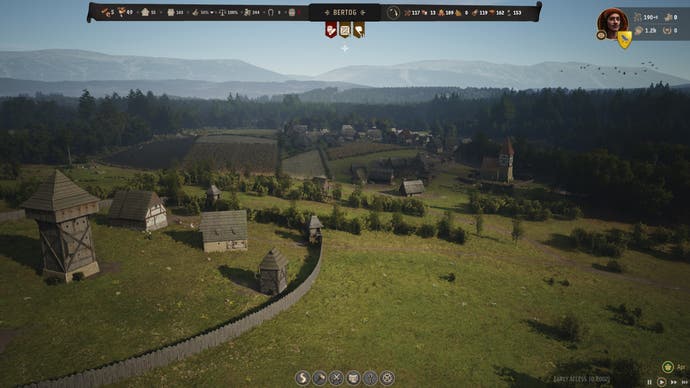
It's a bit like a private company turning public, and floating in an IPO on the stock market. Whereas before, it was beholden to nobody but itself, now it has shareholders with their own ideas, who want a voice in everything going on. It's not exactly the same thing here but by inviting paying customers in, Styczeń has stakeholders to maintain a relationship with. And that's fine - if everyone agrees on everything. But what happens when they don't? What happens when the audience's opinions differ from Styczeń's, or if large clusters of the audience band together around features they want but Styczeń doesn't, particularly - will he hold his nerve and deny them? I'd love villagers in the game to have more of a personality and come forward into the spotlight, because that's what the game seems to be about to me. But that's my opinion, not Styczeń's, and I'd never presume to tell him what to do. Other people, though, will not hesitate.
Until now, Manor Lords has been much like the manor in my village: walled off and accessible only by a select few. The ideas fueling it have lived, almost exclusively, in one person's head (a large part of the allure of the game comes from that, for me, because solo-developed games can't help but have fascinatingly undiluted visions. See Thomas Sala's Ursee games - Falconeer and Bulwark - as other great examples of this. They are distinctive, singular experiences, and in the games market, that can be rare.) But now there will be many other opinions, and I worry that in an effort to be seen to be listening to his audience, Styczeń might compromise - might let his vision be somewhat pulled out of shape.
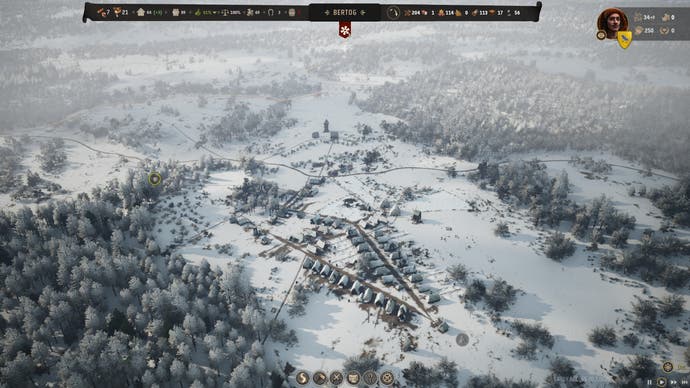
You know, I'd love to hear a proper, frank account from a developer about the push-and-pull of early access between the internal team's ideas and desires, and the audience's. Is it really as harmonious and symbiotic as we're led to believe? I bet it isn't. The noise from hundreds and thousands of people can be deafening, and the pressure from it can be so great it makes me wonder who, at times, is really in control. I wonder whether BioWare would ever have altered the Mass Effect 3 ending had the audience not demanded it. Did it really have any other option - could it have refused? I don't think so. And it's not uncommon - borderline standard, actually - to see games linger longer in early access than they originally planned because, inevitably, new features and ideas and fixes arose. But from whom?
Look, I'm not saying any of this is a bad thing, just that it's a delicate balancing act and potentially a risky moment, opening development up. At that point, the idea no longer solely belongs to you. You are handing over some control of it. And whereas before, it might have had a very unusual shape, soon it might be smoothed - by the sea of opinions around it - into a pebble that looks like many others. I feel for Styczeń and any other developer going through early access, because courting and then managing that kind of community involvement must be tough. The potential is great, but you need to keep on your feet amongst the current and not be dragged away.


